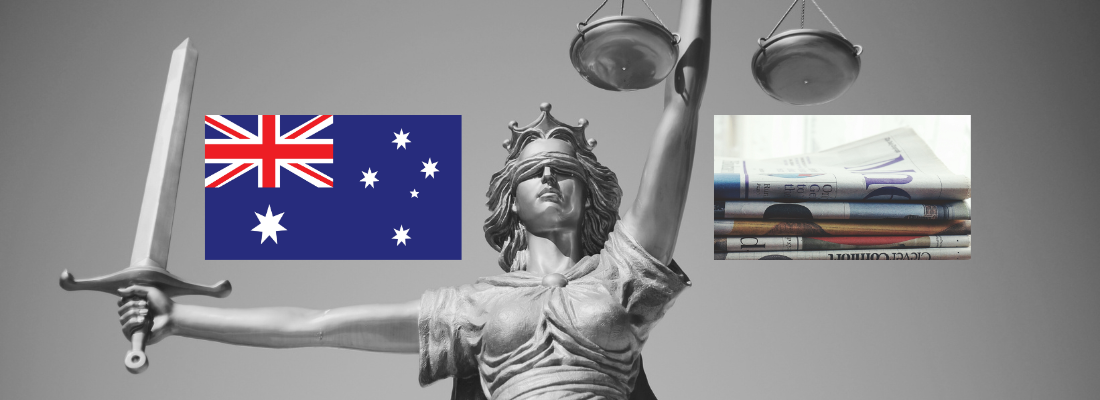IBAHRI applauds victory for media freedom in landmark war crimes defamation trial
Wednesday 28 June 2023

The International Bar Association’s Human Rights Institute (IBAHRI) commends the Federal Court of Australia’s recent ruling in the case of Roberts-Smith v Fairfax Media as affirmation of international human rights standards upholding media freedom and freedom of expression. The ruling comes at a time when, globally, respect for the right to freedom of expression and media freedom are in a state of dangerous decline, as warned in a 2022 report to the United Nations Human Rights Council by Irene Khan, the UN-appointed Special Rapporteur on the promotion and protection of the right to freedom of opinion and expression.
Ben Roberts-Smith, a former member of Australia's Special Air Service Regiment (SASR), sued three newspapers – The Sydney Morning Herald, The Age and The Canberra Times – for defamation after 2018 reports alleged that he was involved in the murders of unarmed civilian Afghans during his time in Afghanistan between 2006 and 2012. Mr Roberts-Smith denied the allegations and brought a multi-million-dollar defamation case against the media outlets.
After two years of proceedings, Federal Court Judge Anthony Besanko ruled that the media outlets had proven the bulk of their allegations to be ‘substantially true’ – evidentiary burden required by Australian civil law procedure – and dismissed the case against them. In his full judgement, released on Monday 5 June, Judge Besanko found Roberts-Smith to be ‘complicit in and responsible for the murder’ of three Afghan men on deployment. IBAHRI acknowledges this is not a finding of criminal guilt against Mr Roberts-Smith and that no criminal charges have been filed.
IBAHRI Co-Chair, and Immediate Past Secretary General of the Swedish Bar Association, Anne Ramberg Dr Jur hc commented: ‘The IBAHRI commends the recent victory for media freedom in the Australian Federal Court. It is imperative that journalists be allowed to serve their legitimate function as truth-tellers and shine a light on the activities of their governments and armed forces. Media freedom is in retreat around the world, and now, more than ever, we stand with all journalists who dare to seek and report the truth in an increasingly hostile and dangerous environment. We call on all governments to repeal criminal defamation and ensure that civil defamation laws are fit for purpose and are not weaponised against journalists in vexatious lawsuits, including SLAPP (strategic lawsuit against public participation) actions. Our legal systems must be able to protect the truth, and the truth tellers.’
Journalists continue to face unacceptable criminal penalties and intimidation, such as sanctions, imprisonment and litigation, for reporting on war crimes allegedly committed during the wars including in Afghanistan, Iraq and Ukraine. So, Judge Besanko’s judgement is important for Australia, and beyond, because it demonstrates that the work of journalists investigating and reporting on war crimes is of legitimate public interest and must be protected under domestic and international law.
IBAHRI Co-Chair Mark Stephens CBE stated: ‘The IBAHRI congratulates the journalists named as defendants in the recent defamation proceedings of Roberts-Smith v Fairfax Media. It is partly due to the fearless reporting of journalists like these, and others around the world, that our democratic principles and the rule of law can be maintained. I also congratulate dear friend and past IBA Chair of the Legal Practice Division Peter Bartlett, Partner, MinterEllison, the head lawyer acting for the media in this case, for his extraordinary effort in defence of his clients. The IBAHRI hopes that this judgement goes towards urging other jurisdictions to protect freedom of expression from spurious defamation claims, aimed at silencing the truth. The IBAHRI echoes the sentiments of the Special Rapporteur Irene Khan in calling for greater protections for whistle-blowers and journalists at state-level, to match the strong protections guaranteed by international law. We urge governments everywhere to provide the necessary protections to allow journalists to perform their legitimate function without hindrance, intimidation, or sanction.’
In its General Comment No 34, the UN Human Rights Committee (UNHRC) stressed that the press must be ‘free, uncensored and unhindered’ in democratic societies to ensure that all citizens may enjoy the rights contained within the International Covenant on Civil and Political Rights (ICCPR), as ratified by Australia. Specifically, Article 19 of the ICCPR guarantees freedom of expression and the existence of a free media.
Ms Ramberg Dr Jur hc concluded: ‘Journalists and the independent media, by virtue of their vital function in democratic society to serve as independent watchdogs and provide trusted and fact-based information in the public interest, must be protected by special laws from arbitrary restraints on their reporting. To the extent that non-criminal defamation laws are permitted by international law as a legitimate limitation on speech, they must conform to the narrow circumstances set out in Article 19(3) of the ICCPR. The UNHRC has been emphatic that defamation laws must be ‘crafted with care’ so as not to pose an unacceptable encumbrance on freedom of expression. Particular care should be exercised where the impugned speech involves matters of legitimate public interest. Allegations of war crimes committed by coalition troops during the war in Afghanistan certainly fall within such concern.’
ENDS
